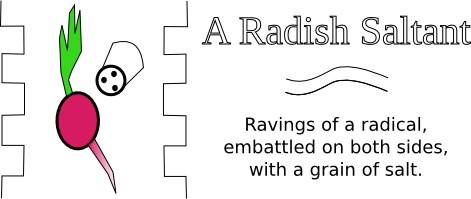When we were recently in Cozumel, we visited Iglesia San Miguel Arcangelo, the Church of Saint Michael the Archangel, on Benito Juarez. It has a beautiful and famous statue of the Archangel there which is the subject of various stories and an interesting history aside from the legends. As it happens, Michael the Archangel is my name-saint (my middle name, not my first), so I took some time exploring the church and the statue.
There were people there quietly praying, so I did not want to disturb them taking photographs inside. I did, however, sit in an alcove dedicated to San Martín de Porres (variously "St. Martin of the Fields" or "St. Martin of Tours" in English) and copy down a prayer displayed there by hand. St. Martin was a Roman knight who cut his own cloak in two to clothe a freezing beggar outside the gates of Amiens. He had a dream that night of Christ wrapped in his torn cloak, leading to Martin's baptism. He was a soldier who showed courage throughout his life but who also sacrificed to bring peace (party responsible for the Armistice being signed on his feast day, 11 November, which is now Veteran's Day). He became a patron of veterans, of volunteers, and of auxiliaries; his torn cloak is borrowed in the logo of our local Sheriff's Auxiliary as an emblem of personal sacrifice in the service of others.
In any case, having copied down the prayer, I promptly misplaced the paper. It reappeared yesterday in a vest pocket. It appears to be different from the typical Catholic devotionals for San Martín:
Oracion del San Martin de Porres
¡Oh! San Martin, atiéndeme.
En mis penas y tribulaciones, consuélame.
En mis dolencias y enfermedades, socorreme.
Dame la salud si me conviene y librame de calquiar mal del alma y cuerpo.
—Amen
[English Translation:]
Prayer of Saint Martin de Tours
Oh! Saint Martin, attend me.
In my sufferings and tribulations, console me.
In my pains and my infirmities, assist me.
Give to me health if it is suited to me, and free me from the faint impressions of the soul and body.
I try to translate "calquiar mal" as "faint impressions" here, given that "calquiar" (an unusual verb) means to copy a drawing by tracing on top of it. I may have also made a copy error here, myself, but there are no alternative verbs which seem a likely candidate for a simple handwriting mistake (comments welcome). There may also be idiom or imagery I am simply missing. It may refer to us being made in the image and likeness of God, but a faulty and imperfect likeness which leads to frailty and sin.
Given my Catholic upbringing (I became a Lutheran some years ago), the devotion to the saints which is still very much alive in the Hispanic churches interests me. I do not necessarily agree with a veneration of the saints to the extent it elevates them to a semi-divine status, but I do believe that trying to live by the example of the saints and using them as meditations for the understanding of our own troubles has a practical value in trying to live a good life. As Dietrich Bonhoeffer (WWII Lutheran theologian and martyr, executed by the Nazis), this may be something the Protestant churches have wrongly discarded.
Thinking of the saints as potential mediators between us and God (as in this prayer) may be a useful tool when we feel so low that we cannot approach the divine directly. We know that they were mortal, that they failed, that they fell down and got back up. But in many ways, that is also the meaning of Christ's ministry to us: Jesus is fully God and fully human. He knows what it is to experience the trials of the flesh, to suffer, and even to pray for relief. In Him, we can always find a bridge back to where we belong. But in any case, the reverence for the saints, their constant remembrance in the Hispanic Catholic devotions, impresses me. It gives me hope that an imperfect man, with a healthy dollup of God's grace and assistance, might remain imperfect, but nevertheless do "OK" in the end.
Πεποιθως αυτο τουτο οτι ο εναρξαμενος εν υμιν εργον αγαθον επιτελεσει αχρις ημερας Ιησοθ Χριστου; [Phillippians 1:6 ABP]
Being confident of this very thing, that he which began a good work in you will perfect it until the day of Jesus Christ; [Phillipians 1:6 ASV]
